I have a vector that holds a pointer to classes:
vector<Entity*> editorElements;
vector<Entity*> entities;
vector<DirectionalLight*> dirLights;
vector<PointLight*> pointLights;
vector<SpotLight*> spotLights;
This code is within my class Scene. The Scene's ctor and destructors are like so:
Scene()
{
editorElements = vector<Entity*>();
entities = vector<Entity*>();
dirLights = vector<DirectionalLight*>();
pointLights = vector<PointLight*>();
spotLights = vector<SpotLight*>();
}
~Scene()
{
delete[] &entities; // ERROR HERE
delete[] &dirLights;
delete[] &pointLights;
delete[] &spotLights;
delete[] &editorElements;
}
In the destructor I marked a line ERROR HERE. It doesn't matter which vector I put first, I always get the error.
Strange is, it was working fine until lately (wasn't touching anything within the Scene class, or in any other classes that use an instance of Scene) and all of a sudden it raised an exception:
It doesn't matter if the vectors are empty or have elements, it gives the error all the same.
I require assistance to get this sorted out.
